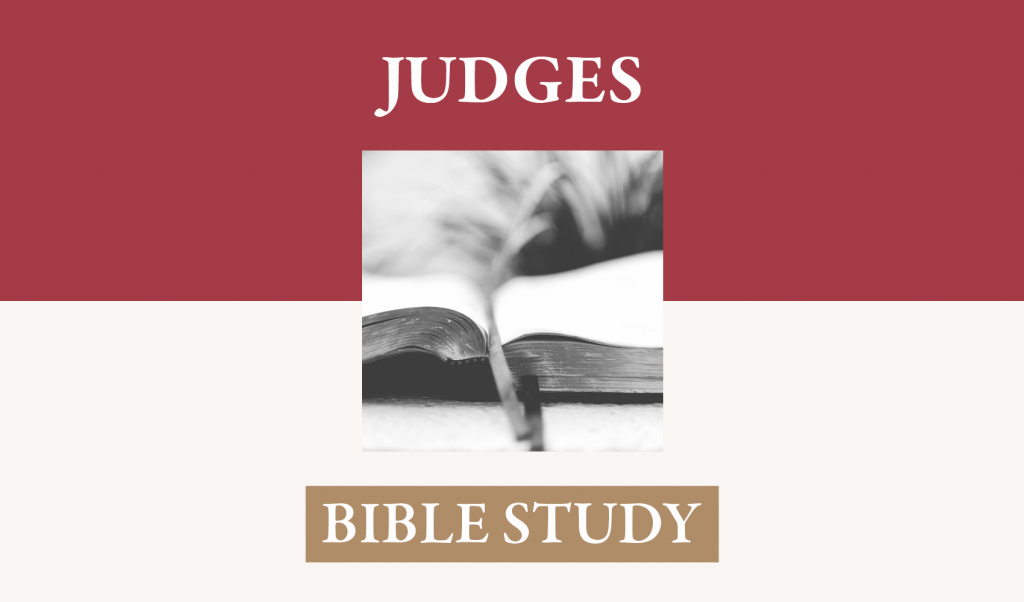LESSON OVERVIEW: For an overview of the entire book of Judges, see the lesson posted for 7/8.
Chapters 4 and 5 focus on the leadership brought to Israel by the military commander Barak and the prophetess Deborah. As chapter 2 made clear, a pattern had developed in Israelite life after the death of Joshua. The people turned away from the Lord and experienced judgment at the hands of foreigners. God graciously delivered them and they turned away again. The book has already described the leadership and deliverance brought by Othniel and Ehud, and has briefly referenced Shamgar (who may not have been an Israelite). Though God had rescued Israelites from oppression at the hands of the Arameans, Moabites, and Philistines, Israel is still unfaithful. Now an opponent arises from within Israel itself. A Canaanite named Jabin establishes an opposition government in the ruins of Hazor, which Joshua had once leveled. He was well supplied—900 iron chariots! It is telling that Jabin’s military commander did not even live in Hazor, but in Harosheth. Though successful, this was a fledgling movement. God was using it with great success to bring judgment upon the Israelites.
Chapters 4 and 5 tell the story of deliverance from Jabin and his military commander, Sisera, first as a narrative and secondly as a poem. Each tell the same story, but offer unique insights into what God was doing and how the people responded. We will draw insights from both to demonstrate the message the author of Judges intends us to learn: unfaithfulness to God leads to a crisis of leadership, but God is gracious and faithful.
God speaks to the crisis (4:1-7).
After describing the latest crisis, Deborah is introduced to the reader. The established pattern in the narrative is to introduce the deliverer after explaining the nature of the crisis, but for reasons that will become clear, Deborah is introduced first. Who was Deborah and what was her role? Verse 4 should be considered carefully.
1) Deborah’s role was not that of deliverer. The text says she was “judging” Israel at that time (for further comment on the word “judge” in Judges see the 7/8 lesson). Chapter 2 explains that when Israel was oppressed, God raised up a judge to deliver Israel from their oppressors. 4:4 indicates that whatever Deborah was doing as she “judged” she had been doing it for some time. People from all over Israel came to consult her, indicating that she had been around long enough to earn a reputation. Nevertheless, the Israelites in the northern territory (at least) were still oppressed by the fledgling rebels at Hazor. Israel still needed a deliverer, a “judge.”
2) Deborah’s role was that of prophet. Why were the people coming to her? The text says the people came to her for judgment. They came to her for answers. Why? She was a prophetess. Though Israel was obviously steeped in idolatry, Deborah had gained enough of a reputation as one who speaks for God that even in their state of idolatry they avidly consulted her. This brings to mind the ministry of other prophets like Elijah and Jeremiah, who were hated by political leaders and by the people and yet were still consulted. God’s word has unmistakable power. Deborah was not Israel’s leader, but the spokesperson for God. And the fact that she was a woman would bring great irony to Israel’s crisis.
3) The role of deliverer belonged to someone else. When God spoke to Deborah about Israel’s crisis, He called her to speak to Barak, a military commander. The other judges responded to God’s call and led Israel themselves. Deborah did not fill that role. She spoke on God’s behalf to the leader God appointed—Barak. Later texts refer to Barak as Israel’s leader (1 Samuel 12:9-11, Hebrews 11:32), not Deborah.
Deborah, then, filled a vital role in the history of redemption. She delivered God’s message of salvation to the leader of God’s people during a time of apostasy and oppression. Always remember that God is gracious to speak to his people. Israel did not deserve a godly woman like Deborah, nor did they deserve to hear a gracious message of deliverance. Yet God is abundantly gracious. We can thank God that He is gracious enough to speak his word to illuminate us about his character, work, and promises.
The leader won’t lead (4:8-16).
Deborah delivers the message, and Barak hesitates. Remember, God had commanded Barak to go. Why was Deborah’s presence necessary? God had given his word that Barak would prevail through Deborah, but Barak was not satisfied with the authority of God’s word. He wanted assurance of God’s presence through the presence of Deborah. Later judges would suffer the same lack of confidence. When God promises victory, his people should respond with courage, not hesitancy. That the Lord is not pleased with Barak’s response is evident from Deborah’s response—the glory for the victory will go to a woman instead of to Barak.
One of the core problems in this passage is in fact Barak’s hesitancy to lead. Yes, Israel had sinned and God graciously delivered them. The cycle of sin and deliverance continued. The story of Barak and Deborah is one of several tales that demonstrate in the book that demonstrate this. However, the author of Judges intends to teach us to follow the Lord faithfully by pointing out the flaws of God’s people (even of their leaders) as well as their moments of faith. Ehud was underhanded. Gideon struggled with confidence seemed to promote idolatry later in life. Abimelech was abusive and tyrannical. Samson was a selfish philanderer. Not only was Israel steeped in idolatry. Even its leaders lacked a clear vision and burning passion to follow the ways of the Lord. In this passage, the critical weakness of God’s man was that he was unwilling to lead out of confidence in God’s word. Consider the following points of application:
If God’s people lack leadership, perhaps this is a reflection of their own sinful compromise. Can a people blinded by sin expect to have the foresight and wisdom to call a godly leader? If they do, will they follow his leadership? Weak leadership is a reflection of a spiritually weak people.
If God moves clearly to call someone to leadership, shouldn’t the clear promises of his word be enough? We must move forward with courage in response to God’s call.
If God puts someone into leadership, shouldn’t the people support and encourage his leadership rather than work to undermine it? Godly leadership should be supported and actively encouraged. Leading is a difficult task. God’s leaders need encouragement and they need to know you support them. Deborah did this despite an obvious weakness in Barak.
The unlikely deliverance (4:17-24; 5:1-5).
Consistent with Deborah’s word, the glory goes to a woman. In a gruesome account, Jael, the wife of Heber, drove a tent peg through Sisera’s skull. Deborah and Barak poetically celebrate Sisera’s untimely and embarrassing demise in 5:24-31. Especially poignant is their poetic depiction of Sisera’s mother—always peeking through the window watching for her conquering hero to come home, but forever disappointed. Note also, though, that Deborah gained a bit of glory herself. In the poem, she sings about her active role (5:7, 12). Barak failed to lead with confidence, and as a consequence both Jael and Deborah played roles they would not have played otherwise.
Secondly, however, note that God brought the deliverance. Barak, Deborah, and Jael were his agents, but God won the victory. Verse 15 makes clear that “the Lord routed Sisera’s army.” Chapter 5 speaks of God marching against his enemies (5:4-5). God promised deliverance. God delivered, even though his leader lacked the confidence he should have had.
REFLECTION:
Are we confident in the promises God has made for us individually or as a church? Do we trust his word and are we willing to act upon it?
Consider the challenges that face God’s leaders and consider how God’s people can help promote and encourage godly leadership.
Consider the gracious work of God, who brings blessings into our lives that we do not deserve.
















